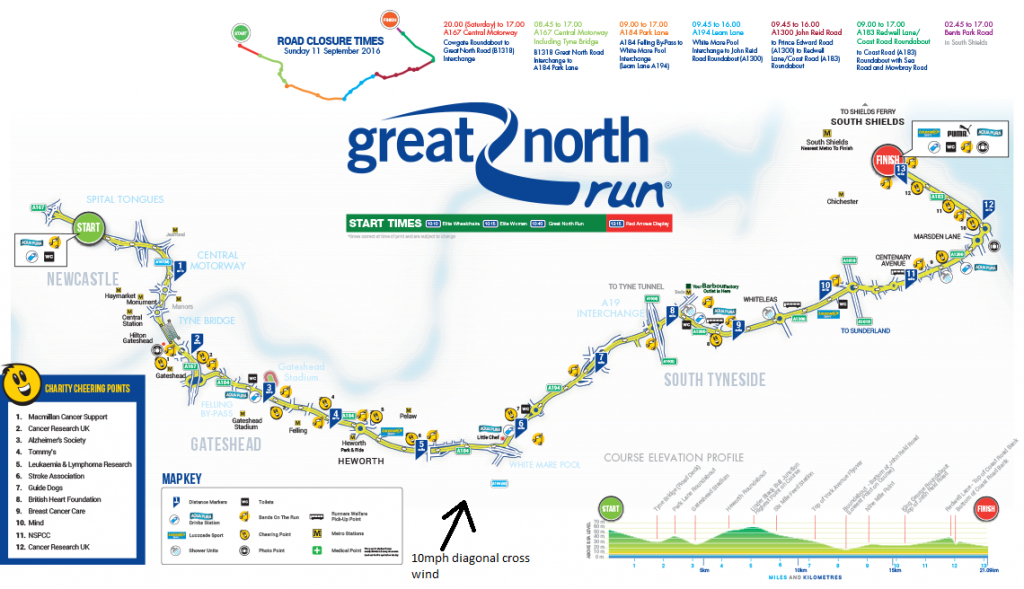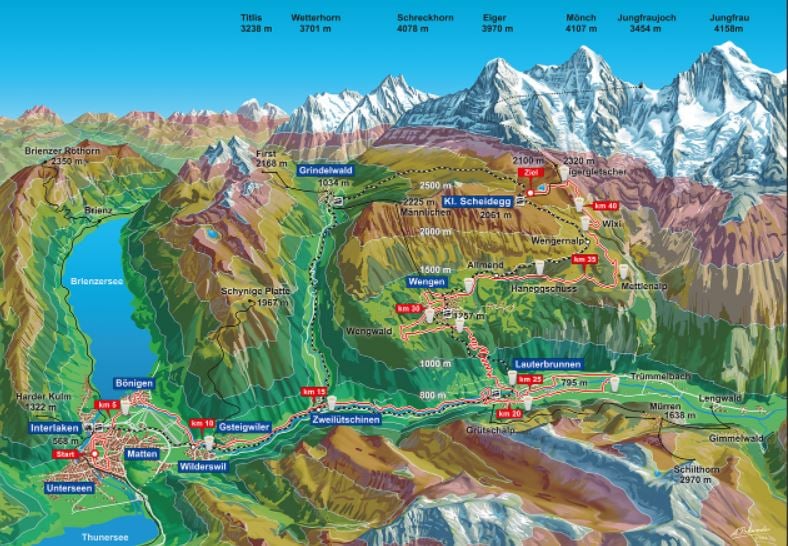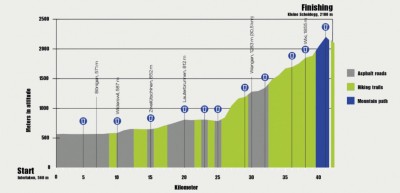WTW: The Men’s 5000 Was Historically Bad in 2016 But The Women’s Was Historically Great, Meet Distance Running’s Newest Female Star Violah Jepchumba, A PR Disaster for Mo Farah and How Much of An Asterisk Does Ritz’s 60:12 Deserve?
The Week That Was In Running – September 5 – September 11, 2016
by LetsRun.com
September 14, 2016
Past editions of The Week That Was can be found here. Questions or comments? Please email us or post them on our fan forum.
The week was highlighted by the 2016 Memorial Van Damme meet in Brussels – the second of two Diamond League finals – where American Shannon Rowbury set an American record (but lost by more than 20 seconds), Sandi Morris vaulted over five meters and a whole lot more happened as well. We start off talking some more about Brussels below but you can find all of our other coverage here.
****
“It Was The Best of Times, It Was The Worst Of Times“
Now that the Diamond League season is over, for all practical purposed the 2016 professional track season is over as well. Here are a few thoughts we had about the season as a whole.
1. It was the worst year in a generation in the men’s 5000
In 2016, the world-leading time was Mo Farah‘s 12:59.29 and just four men broke 13:00 on the year. That’s the slowest world leader in 23 years – since 1993 when Ismael Kirui led the world with the 13:02.75 he ran to win the world title over a 20-year-old Haile Gebrselassie. Four is also tied for the fewest number of men to break 13:00 in a year in 22 years, since 1994 when only Gebrselassie broke 13:00 (four also broke 13:00 in 1995 and 2014).
World Leading Time/# of Runners To Break 13:00
2016: 12:59.29 – 4
2015: 12:53.98 – 6
2014: 12:54.83 – 4
2013: 12:51.34 – 7
2012: 12:46.81 – 16
2011: 12:53.11 – 13
2010: 12:51.21 – 17
2009: 12:52.32 – 15
2008: 12:50.18 – 6
2007: 12:49.53 – 8
2006: 12:48.09 – 19
2005: 12:40.18 – 17
2004: 12:37.35 – 11
2003: 12:48.81 – 13
2002: 12:55.85 – 7
2001: 12:56.72 – 6
2000: 12:49.28 – 12
1999: 12:49.64 – 10
1998: 12:39.36 – 7
1997: 12:39.74 – 8
1996: 12:45.09 – 10
1995: 12:44.39 – 4
1994: 12:56.96 – 1
In compiling that chart, we realized that this is the second year that Mo Farah has had the world leader at 5000 (he also did it in 2011). For those of you who like to debate GOAT status, please realize that Kenenisa Bekele had the fastest time in the world in the 5000 for six straight years (2004-2009).
2. It was the first year since 2010 that no man broke 8:00 in the steeple
Fastest Time on Year – # of sub-8:05 performers / # of sub-8:10 performers
2016: 8:00.12 – 3 / 8
2015: 7:58.83 – 3 / 4
2014: 7:58.41 – 5 / 8
2013: 7:59.03 – 5 / 10
2012: 7:54.31 – 6 / 9
2011: 7:53.64 – 4 / 11
2010: 8:00.90 – 6 / 10
3. It was the best year ever in the women’s 5000
This year Almaz Ayana came close to the world record several times and five different women broke 14:30 – the most in history. In Brussels on September 9, three women (Ayana, Hellen Obiri, Senbere Teferi) broke 14:30 in the same race. Over the past 20 years, three women broke 14:30 in the same year on just three occasions (2016, 2013, 2008).
# of Sub-14:30 Performers By Year Since 14:30 Was First Broken
2016: 5
2015: 2
2014: 2
2013: 3
2012: 0
2011: 2
2010: 2
2009: 0
2008: 4
2007: 2
2006: 1
2005: 1
2004: 2
2003: 1
2002: 0
2001: 1
2000: 0
1999: 0
1998: 0
1997: 2
Those figures lead us nicely to the next section.
****
Stat of the Week I
4 – number of times that Almaz Ayana has broken 14:20 in the last two years, after her 14:18 win in Brussels last week.
****
Violah Jepchumba’s Dream Year Continues / Performance Of The Week
Given that a Diamond League final was held last week, it may come as a surprise for you to learn that our performance of the week came on the road.
But what a performance it was.
At the 21st Birell Grand Prix in Prague, Kenya’s Violah Jepchumba nearly broke the world record for a road 10k when she ran 30:24, just missing Paula Radcliffe‘s 30:21 world record.
Very impressive.
What you may not realize is her first 5k split was 14:46 and the world record for a road 5k is 14:46. So that’s even more impressive than her overall time.
And given our talk last week about aided road race times, let us immediately make it clear to you that the Birell course is not aided. You can see in the course map below that it’s a loop course.
And it doesn’t appear that it was shorter than normal or anything like that as the men’s times were nearly identical to what they were in 2015.
Jecphumba is just incredibly good.
So who the hell is Violah Jepchumba? Well, she’s a 25-year-old who started racing on the pro circuit in 2014 when she ran 32:21 for 10k and 73:20 for the half-marathon. Last year, she improved to 32:09 and 69:29 before really busting out earlier this year.
Her 2016 season has been a dream.
In January, her name first became noticed when she won the Nike Discovery Cross Country Championships in Kenya over a stacked field that included Helah Kiprop, the 2015 world championship marathon silver medallist who would win the Tokyo Marathon in February, Hyvin Jepkemoi, the 2015 world champion and 2016 Olympic silver medallist in the steeple, and Jemima Sumgong, who would go on to win the London and Olympic marathons.
In April, also in Prague, she officially arrived as a star when she blitzed a 65:51 half-marathon – a time which we pointed out was the third-fastest time ever recorded on a record-eligible course for 13.1. And in that race, maybe as impressive as the overall time was what she did in the first half – she hit 10k in 30:29.
Since then, she’s raced just twice, picking up half marathon wins in April (68:01) and May (68:18), so she’s undefeated on the year.
Why someone who was splitting 30:29 in 10ks in the middle of a half-marathon didn’t try out for the Olympics is beyond us (if you are her agent or know her story, please email us). She’s obviously got a bright future, whether she tries to get a medal on the track in 2017 at Worlds in the 10,000 or goes for a marathon debut.
More: *MB: Jepchumba nearly misses the Paula Radcliffe’s road 10K WR
*****
Dathan Ritzenhein Impresses at Great North Run
The other big road race last week took place in the UK at the Great North Run where 2016 Olympic champions Mo Farah (60:04) and Vivian Cheruiyot (67:54) got the wins. Farah and Cheruiyot winning wasn’t a big surprise – what was newsworthy for US fans was that Dathan Ritzenhein led most of the men’s race and ended up second in 60:12.
60:12 is quite fast for an American. It’s the fifth-fastest half run by an American under any conditions. Ritz’s preparations for the 2016 TCS New York City Marathon are obviously going quite well.
| 5 Fastest US Half Marathons 1. Terry Cotton 59:41* Fontana 1986 2. Ryan Hall 59:43 Houston 2007 3. Dathan Ritzenhein 60:00 Birmingham 2009 4. Todd Williams 60:11* Tokyo 1993 5. Dathan Ritzenhein 60:12* Great North 2016 *Came on a non-record-eligible course. |
Now let us put a tiny damper on it. The Great North Run isn’t a record-eligible course.
First, there is an elevation drop as the course goes from Newcastle to the ocean at South Shields. The course map indicates the race features overall a net drop of 22 meters (72.2 feet) downhill. Using John Kellogg‘s formula of every 10 feet in elevation drop helps you by 1.8 seconds, the elevation drop is worth 13 seconds (12.99 seconds).
And then there was the weather. On the broadcast, Steve Cram described it as follows:
“But on a day like today where the weather is so good – with a slight following breeze as well – almost perfect conditions for running fast.”
We tried to find an official report from Weather Underground to see exactly what the wind was. We couldn’t find an official weather report for Newcastle (race start) or South Shields (finish) but found one at the airport which is north of the course. It reported a wind of 12 to 8 mph coming out of the southwest which would be a diagonal tailwind of sorts as shown on the course map below.
 Course map, elevation and wind (we added in wind from Weather Underground)
Course map, elevation and wind (we added in wind from Weather Underground)
We then reached out to our resident wind expert John Kellogg (MB: Official John Kellogg Is a Genius Thread (He Predicted The 2:03 on Boston)) to see how much the wind aided the times. He said he didn’t think all that much as most of it was a cross wind. He estimated 30 to 35 seconds. If you combine that with the elevation aid, we’d say the times were roughly 45 seconds faster than they would be on a flat loop course.
So if Ritz is in 61 flat shape, that’s still pretty darn good.
More: *MB: Ritz 2nd, Mo first at GNR
Mo Farah Gets Third Consecutive Victory At Great North Run, Winning In 60:04 To Beat Dathan Ritzenhein By Eight Seconds
****
Video of the Week / Rudisha Gets After It
A 500-meter race was held the day before the Great North Run as part of the Great North CityGames. In the race, 800 world record holder David Rudisha ran super fast – 57.69 – to get the win. One thing we didn’t realize when we initially hyped the time on our front page was that time was also aided as the race, which was partly run on the road and partly on the track, featured a downhill start. Nonetheless, we great enjoyed seeing Rudisha really get after it and run with abandon.
It’s certainly an entertaining race to watch. If you missed it, check it out. We’d never seen Rudisha in a road race before.
https://www.youtube.com/watch?v=dML03QlrwyU
More: Full Results
*MB: Rudisha runs 57.69 over 500m in Newcastle
*****
PR Fail
Last week Sky Sports in the UK announced via Twitter they would be doing a Q&A and with Mo Farah later in the week and asked people to submit questions via the #AskFarah hashtag. Anti-doping crusaders turned it into a PR nightmare as shown by some of the tweets below.
you claim not to know Jama Aden, but wrote this about him in 2014… Explain? #AskFarah pic.twitter.com/JbcAdAZuuE
— ANGRY (@Angry_Athletics) September 6, 2016
#AskFarah @SkySportsNewsHQ why do all the things that doping athletes do? And then cry when people call you a doper. https://t.co/YaJYZI5P4f
— Sir Mo Doorbell (@MoDoorbell) September 8, 2016
https://twitter.com/Digger_forum/status/773785821564530688
At the Great North Run, Farah said he was unfazed by social media critics who blasted him as he said to The Telegraph, “As an athlete, when you get to a high level then questions will come. You have to do what you can do, concentrate on what you can control and not let it worry you.”
More: *MB: AskFarah on Twitter
More Farah PR News:
- Mo Farah’s Wife Tania Says They Were “Humiliated” By A Delta Flight Attendant When He Was Trying To Board A Flight Home From Rio Farah’s wife accused the flight attendant of being racist and “yelling at him like he was a piece of sh— to get back into line” when he was trying to board business class for his flight. *BBC *Discuss
- Other Reports Say That The Farahs Arrived Late For Business Class Boarding And That Farah’s Wife Was “Disrespectful” Witnesses say Farah was silent, but his wife called the worker “f***ing pathetic” and said she had a “sad little life.”
- Farahs Applauded By Other Passengers After Being Allowed To Board
****
Stat of the week II
$46,000-$50,000 – amount of money that Shaunae Miller likely lost out on by not competing in the Brussels DL meet last Friday because of a ‘contractual breakdown’ between her agent and the meet organizers. If Miller had run faster than 50.51, she would have won the $40,000 jackpot and finished 2nd ($6,000) and if she’d run under 50.40 she would have beaten Caster Semenya and won first place ($10,000).
Of course, the 400 Olympic champ Miller likely didn’t want the meet organizers to get a marquee matchup between the 800 and 400 Olympic champs without receiving a nice appearance fee as a loss to Semenya might have damaged Miller’s psyche heading into 2017.
More: MB: Agents or aspiring agents – Can you tell me why Shaunae Miller wouldn’t run the Brussels DL for $50,000?
*Olympic 400 Champ Shaunae Miller Pulls Out Due To A “Contractual Breakdown” Between Her Managers And Meet Promoters
****
Quotes of the Week
#1 A Dream Becomes Reality
“It was a dream that became a reality. The icing on the cake was the team gold.”
-American Joseph Gray after capturing individual gold and leading Team USA to team gold at the 2016 World Mountain Running Championships on Sunday in Bulgaria. In the women’s competition, Austria’s Andrea Mayr won her sixth title, winning the 7.3 km race by a ridiculous 1:43.
@joegeezi Congratulations on being 2016 World Mountain Running Champion!! pic.twitter.com/yBbeTc08Zy
— Electro-Bites (@Fuel100bites) September 12, 2016
More: MB: Joseph MF Gray just won the World Mountain Running Championships!
*Trailrunner.com recap, IAAF recap, USATF recap
#2 Bernard Lagat calls his 3:47 mile PR ‘pathetically slow’
“If I had one opportunity to go back, I would have run with Hicham El Guerrouj in the mile when he was breaking the world record [3:43.13] or when he was running 3:45, 3:44s. I would have loved to have been there.
“When he broke that world record with Noah Ngeny running the second fastest time ever, I said ‘nah, I’m not gonna run this weekend, I’m gonna chill’ only to remain in pain for a long time – including now. My personal best would not be 3:47, it is pathetically slow. That is the only regret I have.”
-Lagat talking last week to Spikes about his track career.
#3 A Convincing Recruiting Sales Pitch
“I tell recruits that I won nine gold medals. I was Olympian of the century. I don’t take a dime to coach for this university. I don’t need anything from you but your success, and I want that for UH, I want that for you and I want it for your family.”
–Carl Lewis, talking to the Houston Chronicle about his recruiting pitch now that he’s a volunteer coach for the University of Houston. In the same article, Lewis also explained why he thinks the Olympics should be in LA for 2024:
“When I lived (in Los Angeles), every single day someone would say something about the L.A. Games,” he said. “You might be at the grocery store and you bump into (volleyball star) Karch Kiraly, and you stop at a traffic light and there is (diver) Greg Louganis. The Olympics is part of the fabric here.”
More: Trail Blazer: Carl Lewis sets a gold standard in track and field
****
Instagram of the Week
Shot put star Valerie Adams last week. Talking to the New Zealand Herald about the post, she was very complimentary of her husband.
“He’s the one for me. He’s so laid-back and chilled,” said Adams. “It makes my life easier. He’s got the brains, I’ve got the muscle. It’s a great combination.”
More: Val Adams’ cheeky shot at husband
*****
Looking For A Challenge?
Finishing a marathon no longer has the badge of prestige that it used to as hundreds of thousands of people now do it every year. But have you ever run a marathon up a Swiss mountain?
Last week, the 24th Jungfrau Marathon, which Wikipedia says is run “in full view of the famous Eiger, Mönch, and Jungfrau mountains,” was held in Switzerland and it sounds like a real challenge. The race features a 5,003-foot elevation gain as it starts at 1,854 feet but finishes at 6,857 feet and that’s after peaking at 7,228 feet mid-race.
 Course runs on road, mountain paths and hiking trails
Course runs on road, mountain paths and hiking trails
The course records for the event are 2:49:01 (Jonathan Wyatt 2003) and 3:19:16 (Martina Strahl 2016).
More: Jung Frau Marathon Website
****
Recommended Reads
- 1976 Olympic discus champ Mac Wilkins takes you behind the scenes into Ryan Crouser’s gold medal performance in Rio
- All-Time Illinois Greats Craig Virgin And Jim Spivey Reflect On The Career And Retirement Of Legendary York High School Coach Joe Newton
- Spikes Looks Back At The Storied Career Of Bernard Lagat As The Legend Says Farewell To Track
Previous Recommended Reads from other weeks can be found here.
****
Quotes Of The Day And Last Week’s Home Pages
To see the actual quotes of the day from last week or last week’s home page or any home page, go to our archive page.
Past editions of The Week That Was can be found here. Questions or comments? Please email us or post them in our running fan forum.







